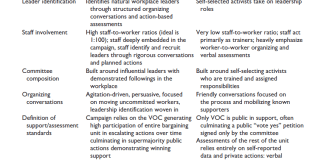Standard Chartered CEO Bill Winters is standing out in the global banking sector by maintaining a flexible, hybrid work policy and resisting the rigid office mandates now sweeping through much of Wall Street. As peers from companies like JPMorgan and Goldman Sachs urge staff back to traditional office rhythms, Winters has doubled down on a philosophy of employee autonomy and trust, placing his bank in sharp contrast to its US and UK peers.
In a recent interview with Bloomberg Television, Winters was unequivocal: “We work with adults, and the adults can have an adult conversation with other adults and decide how they’re going to best manage their team.” He emphasized that the approach is “working for us,” adding, “How other companies make that work? Everybody’s got their own recipe.” For Standard Chartered, that recipe is rooted in flexibility, allowing teams and managers to agree on in-office schedules that fit their business needs and personal lives.
Winters, who himself follows a hybrid schedule and aims to be in the office four days a week, says his approach is about fostering responsibility. “Our MDs want to come to the office. They come to the office because they collaborate. They manage their people. They lead teams. But if they need the flexibility, they can get it from us,” he said. This hands-off stance has helped the bank retain talent, keep attrition low, and, according to Winters, maintain a productive workforce that manages to deliver results in a post-pandemic landscape.
Standard Chartered’s performance is thriving at the moment. In the second quarter of 2025, the bank reported a 48% jump in pre-tax profit—performance Winters points to as validation of the flexible model. On the second-quarter earnings call with analysts, Winters commented on the strong results, saying they are “testament to our ability to deliver exceptional services in support of our clients’ needs, and it is clear that our strategy is working.”
A bank unlike the others
The bank’s flexible policy stands in contrast to a growing wave of office mandates from industry rivals. JPMorgan, Goldman Sachs, and HSBC have all tightened office attendance requirements in the last year. JPMorgan CEO Jamie Dimon has criticized remote work for slowing decision-making and inhibiting innovation, recently directing most employees to return to the office full-time. Goldman Sachs CEO David Solomon has similarly dismissed remote work as “not a new normal” but an “aberration that we are going to correct as quickly as possible.” HSBC, too, recently directed its managing directors to return to the office at least four days a week.
Other banks, like Citi, remain more flexible but still require at least three days of in-office attendance, while offering hybrid employees set windows for remote work. The trend across many sectors, including tech and telecommunications, is toward stricter in-office requirements, with some large employers warning that ongoing remote work could put jobs at risk.
Despite these pressures, Standard Chartered is holding its ground. Winters and the bank’s leadership remain vocal in their conviction that flexibility works—citing strong business results, low attrition, and positive feedback from employees, especially those balancing care responsibilities or preferring non-traditional schedules. The company was among the first major banks to formally adopt hybrid work in November 2020 and has shown little inclination to change course, even as industry sentiment shifts.
Companies who stand by remote or flexible work schedules say it leads to a better talent pool, less turnover, and a happier workplace, while critics say it’s corrosive to the human element that goes with great teamwork. Winters dismisses such concerns. He insists that, with the right leadership, teams remain collaborative and engaged, and that forcing staff into rigid molds can actually hinder, rather than help, performance.
As Wall Street and other sectors debate the future of work, Standard Chartered’s approach offers a compelling case study in the value—and business logic—of empowering employees to strike their own balance.
Standard Chartered did not respond to a request for comment.
For this story, Fortune used generative AI to help with an initial draft. An editor verified the accuracy of the information before publishing.
Great Job Nick Lichtenberg & the Team @ Fortune | FORTUNE Source link for sharing this story.




